#African Liberation
Text

#books#education#black power#african power#as Hilliard#study#books and reading#educate yourself#thesagittarianmind#African liberation#black liberation
11 notes
·
View notes
Text
#blacktumblr#africa#black liberation#african liberation#pan africanism#aaprp#all african people’s revolutionary party
20 notes
·
View notes
Text

#Thomas Sankara#Fela Kuti#Nigeria#Burkina Faso#African Liberation#African Music#African Rebels#Revolutionary Africans
70 notes
·
View notes
Text
Blueprint for Black Power by Amos N. Wilson #WeAreReading African Philos...
2 notes
·
View notes
Text
“The intelligentsia always leads the nationalist movement in its early stages. It inspires to replace the colonial power, but not to bring about a radical transformation of society. The object is to control the system rather than to change it, since the intelligentsia tends as a whole to be a bourgeois minded and against revolutionary socialist transformation.”
Kwame Nkrumah, Class Struggle in Africa, 38 (1970, 2006)
#kwame nkrumah#socialism#communism#africa#african politics#African liberation#black liberation#books#class struggle in africa
3 notes
·
View notes
Text
Like halfway through "how Europe underdeveloped Africa" cause I decided I'd read/listen to it after I had a strong base on knowledge on African history and just holy fuck is he right about nearly everything so far.
Having learned about how extensive African trade was prior to the 18th century and how heavily most African kingdoms shifted in the 16th it's very clear that what he points out in the way the slave trade and the need to aquire firearms grew the European economies while near completely emptying out African economies and how the hard shift to European import goods after Europe had grow through the use of African slave labor and monopoly of trade routes is still a largely still at play in the era of neocolonialism.
The way that Walter Rodney not just points out that this is true, but the depth to which he covers a variety of African kingdoms, their economies, and cultural practices puts even some college level courses to shame while also showcasing the exact ways in which some of these stronger or more expansive kingdoms like the Ashanti, oyo, borno, Kongo, and Benin kingdoms had explicitly tried everything to get guns through any other trade and how the Ashanti, merina, Ethiopian, Burundi Benin kingdoms sought our education and scholars to begin industrialization and the systematic way in which Europeans and Americans prevented that is just, well it's damming.
It's a continuing reminder how from the first stage of European expansion and control they had precisely zero good intentions for the peoples of Africa. That Europe saw Africa as nothing more than a way to grow itself, it's institutions and improve its economies by depriving Africa of labor, materials and freedom which is true to this day, most starkly in the Congo but true across the whole region.
But while the book shows the crimes of Europeans without sugar coating, it also doesn't glorify the African leaders and more importantly those that became collaborative with European despitism. It also does not abide by the word games the European powers like to play and goes in depth to the way Europeans had no actual interest in ending slavery, and that while invading the various kingdoms and communities to "end slavery" the created some of the most brutal slave conditions on this side of the globe, not just in Leopolds Congo but in French forced labor camps and British controlled regions, with the Portuguese being particularly up front about it.
Truly a shame that like most other black radicals Rodney was murdered so young. The rarity to which black radicals even get to 40 shows how desperately capitalist and white supremist try to prevent even the slightest push back from black voices. It also makes clear how much we all need to know this stuff, from debois's black reconstruction to nkrumah's neoimperialism these books give a great understanding of the past and the precise way in which we arrived to the current situation.
I pray that with the new scramble for Africa that is unfolding in front of our very faces, the genocides in the Congo, and Sudan, and the way in which these interlock with the genocide of Palestinians, that we all take the time to properly read and reflect so that we may properly organize and fight back for a fully free and sovereign Africa and Palestine and a world free from white supremacy.
#black liberation#colonization#politics#indigenous liberation#world of the oppressed#pan african#the colonized#How Europe underdeveloped Africa#walter rodney
657 notes
·
View notes
Text
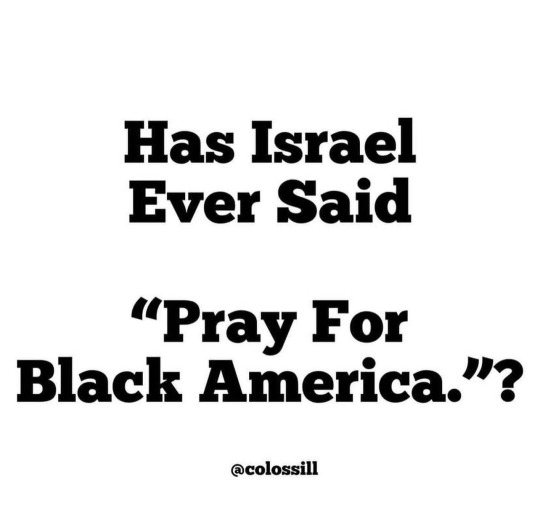

660 notes
·
View notes
Text
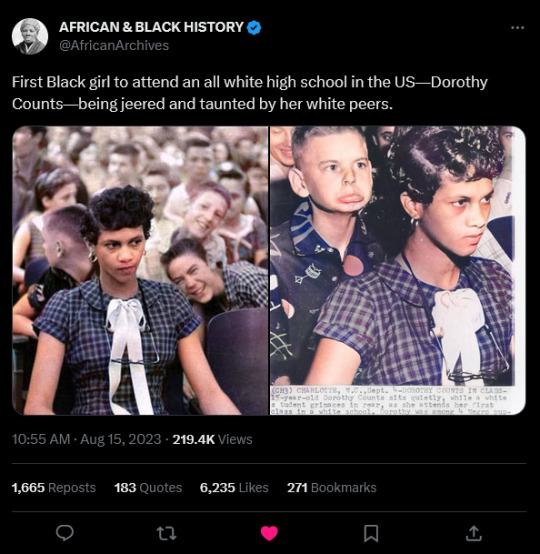
#blm#discrimination#defund the police#bipoc#black lives matter#civil rights#black lives fucking matter#lgbtqia#black lives movement#black lives have always mattered#black lives are important#black history#lgbtq#black liberation#african american history#civil rights movement#black community#civil war#civil liberties#black history month#black pride#black culture#black archives#black excellence
830 notes
·
View notes
Text
A symbol of resistance
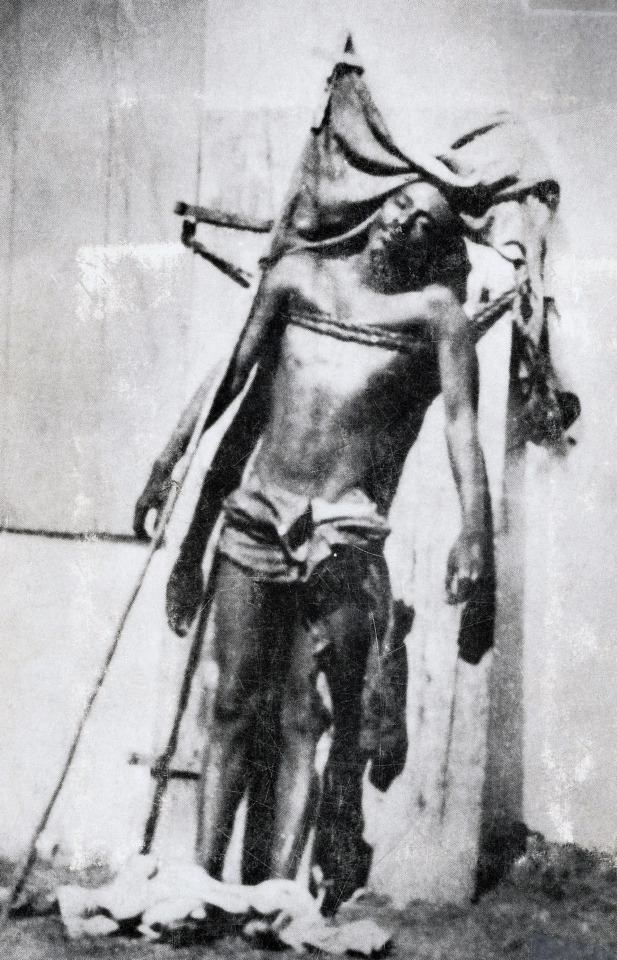
Charlemagne Péralte
Charlemagne Péralte was a Haitian resistance leader shot by U.S. forces during the 1915 occupation.
After Péralte's death, U.S. troops displayed his body posed in a way that resembled a crucifixion – tied upright with a Haitian flag draped over him. This photo was intended to intimidate the Haitian population.
However, it backfired. The image resonated with Haitians, making Péralte a martyr and a symbol of resistance. There's even a famous Haitian painting called "The Crucifixion of Charlemagne Péralte for Freedom."
#resistance#Charlemagne Peralte#Ayiti#Hayti#Haiti#U.S. Occupation#martyr#Hero#The Crucifixion of Charlemagne Peralte#african diaspora#History#EvilisWinning#black liberation#1915
321 notes
·
View notes
Text

Image of a Black Samurai in Japan with his family.
8K notes
·
View notes
Text
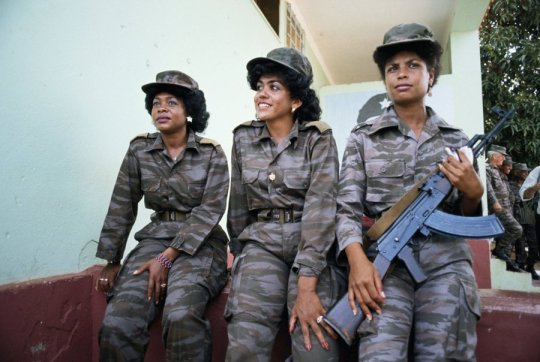

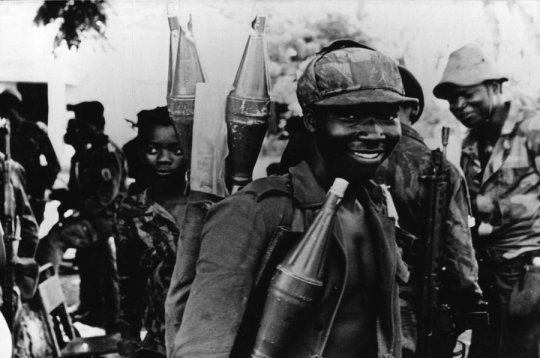


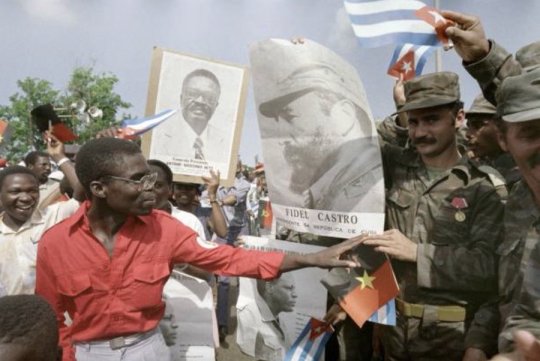

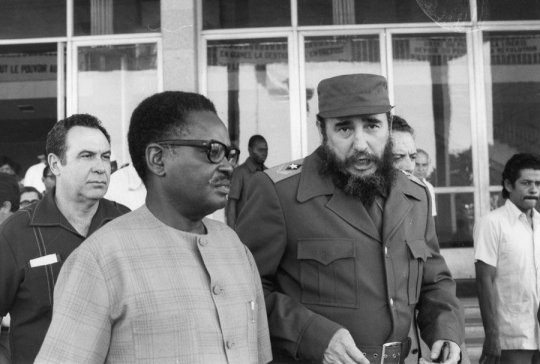

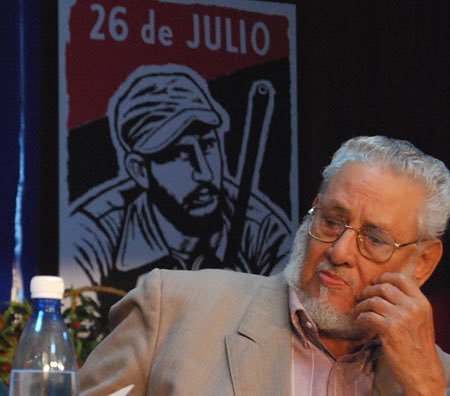
1.On this day in 1975, Cuba began Operation Carlota, its most important military internationalist mission in Africa. It was a major undertaking that contributed to the defeat of the apartheid military regime in South Africa & the independence of Angola & Namibia. More of the story:
2.Across Africa, Cuba provided military instructors & doctors, helping rebels gain their independence from Europeans. After the Portuguese dictatorship fell in 1974 & Portugal prepared to grant Angola independence on Nov. 11, 1975, three local movements fought to take power.
3.The largest rebel group with most popular support was the People’s Movement for the Liberation of Angola (MPLA). They were providing critical training & safe haven to other national liberation forces like the ANC (South Africa), SWAPO (Namibia), and FRELIMO (Mozambique).
4.In early November, the Apartheid South African Army was advancing 45 miles per day toward the capital Luanda. South Africa’s invasion endangered not only Angola’s revolution, but the struggle for liberation throughout the continent.
5.The racists wanted to install a puppet regime led by CIA collaborator Jonas Savimbi who would be ok with white rule in South The MPLA leaders, then understood that only an urgent appeal for international solidarity would enable them to fight of this invasion & secure independence.
6.The Angolans had one unlikely country they could turn to: Cuba. They had already provided military instructors to assist the MPLA. The answer came less than 48 hours later on Nov. 5. Yes. Fidel Castro & the Communist Party of Cuba reached its decision without thinking twice.
7.On another Nov 5 in 1843, a slave called Black Carlota, working on the Triunvirato plantation in the Matanzas region, took up her machete in a slave rebellion in which she lost her life. It was in homage to her that the solidarity action in Angola bore her name: Operation Carlota.
8.On Nov. 7, the first 82 soldiers, carrying light artillery, left to Angola. Over the coming weeks more than 10,000 Cuban troops would land in Angola. More than a decade later, at the end of apartheid, there would be as many as 36,000 troops fighting against the apartheid forces.
9.By the end of 1975, Cuban troops had routed the apartheid army & prevented their takeover of the country. The world owes Cuba and these internationalist soldiers a huge debt.
10.Cuban negotiator, Jorge Risquet and the defence of Cuito Cunavale.
SOURCE: Manolo De Los Santos@ manolo_realengo
#African Liberation#Angola#Cuban Revolution#Imperialism#Apartheid#South Africa#Operación Carlota#Revolutionary History#MPLA#African rebels#Revolutionary African Women#SWAPO#ANC#FRELIMO#Portuguese Colonization
51 notes
·
View notes
Text

#malcolm x#afro american unity#black empowerment#african unity#african american#pan africanism#black pride#unity#africa strong#respect#civil rights#black history#malcolm x quotes#solidarity#empowerment#black leadership#racial justice#black unity#liberation#diaspora connection
286 notes
·
View notes
Text

Facts!
#blackmen#melaninpoppin#blackcouples#blackwomen#blacklove#blackfamily#blackfathers#melaninrich#marriedandblack#blackexcellence#black tumblr#black liberation#blackisbeautiful#black history#african
135 notes
·
View notes
Text

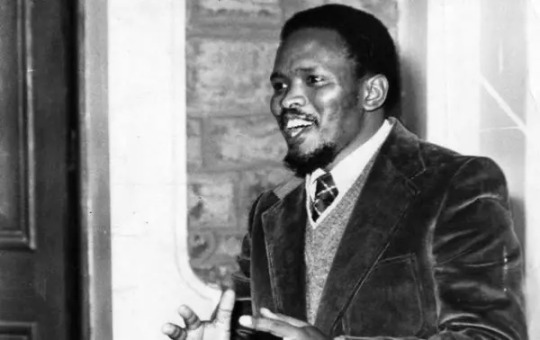
Stephen Bantu Biko
Stephen Biko was born in 1946, in King William's Town in the Eastern Cape, South Africa. As a medical student at the University of Natal, he was involved with the National Union of South African Students (NUSAS) and went on to found the South African Students' Association (SASO).
At a time when the African National Congress and Pan-Africanist Congress were banned by the government, SASO filled the political vacuum by evolving into the Black Consciousness Movement.
In 1972 Biko was expelled from the university, and the following year he was banned by the authorities. Despite this, he played a key role in organizing the protests that culminated in the Soweto Uprising of 1976.
He helped to unite over 70 black consciousness groups which helped to develop the Black Consciousness Movement and help advance the liberation struggle, building a vanguard party.
He was banned between 1975 and 1977 and caught, arrested and in police detention September 12, 1977 after being beaten mercilessly, he slipped into a coma to his death.
Although Biko never lived to write his memoirs, he left behind some revealing documents. African Lives includes a portion of an interview Biko gave to an American businessman a few months before he was detained and beaten to death.
He was assassinated because he represented power of African unity and the black consciousness and courage of the people. Long live the life, consciousness, courage, contributions and legacy of Stephen Bantu Biko. May his spirit live and manifest in future generations.
•••
Stephen Bantu Biko
Stephen Biko nació en 1946 en la ciudad del Rey William en la Provincia del Cabo, Sudáfrica. Cómo estudiante de medicina en la Universidad de Natal, estuvo involucrado con la Unión Nacional de Estudiantes Sudafricanos (NUSAS) y luego fundó la Organización de Estudiantes Sudafricanos (SASO).
En un tiempo en el cual el Congreso Nacional Africano y el Congreso Pan-Africanista fueron prohibidos por el gobierno, SASO llenó la aspiradora política al evolucionar y convertirse en el Movimiento de Conciencia Negra.
En 1972, Biko fue expulsado de la universidad y al año siguiente fue exiliado por las autoridades. A pesar de esto, él jugó un rol importante en organizar las protestas que llevaron a la Rebelión de Soweto de 1976.
Ayudó a unir alrededor de setenta grupos de conciencia negra, lo cual ayudó a desarrollar el Movimiento de Conciencia Negra y ayudó con los avances para la lucha por la liberación, así creando un partido vanguardista.
Fue exiliado desde el año 1975 hasta 1977 y el 12 de septiembre de 1977, fue arrestando y puesto bajo detención policial. Luego de haber sido atacado sin piedad alguna, cayó en coma y falleció.
Aunque Biko nunca vivió lo suficiente para escribir su autobiografía, dejó unos documentos muy reveladores. Vidas Africanas incluye una porción de una entrevista que Biko le dio a un empresario estadounidense unos meses antes de que fuese detenido y golpeado hasta morir.
Fue asesinado porque él representaba el poder de la unidad africana, la conciencia negra y la valentía del pueblo. Larga vida a la vida, al conocimiento, a la valentía, contribuciones y legado de Stephen Bantu Biko. Que su espíritu viva y se manifieste en futuras generaciones.
#blacklivesmatter#blacklivesalwaysmatter#blackhistory#english#spanish#history#africanhistory365#africanhistory#african history#historia africana#africanheritage#south africa#africa#education#black history is everybody's history#black history is world history#historyfacts#soweto#black liberation#protest#university#historia#knowyourhistory#heritage#hero#black history#espanol#share#blackhistorymonth#blackpeoplematter
114 notes
·
View notes
Text
Black Woman CONVERTS To Republican Then GOES OFF On Hateful Democrats & ...
youtube
#politics#race#black people#black culture#identity politics#conservative#donald trump#african americans#kamala harris#2024 presidential election#liberal#democrats#republicans#the economy#fear mongering#Youtube
60 notes
·
View notes
